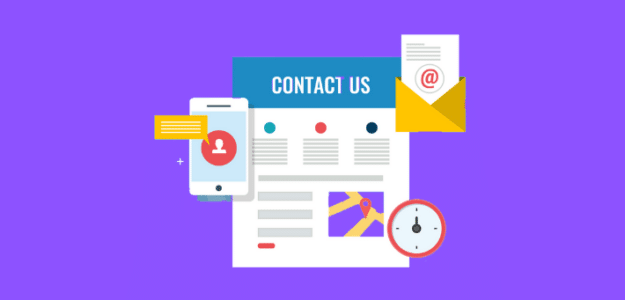Shopify and AI| Crafting the Future of Online Retail
Discover how to enhance your online store with AI-powered solutions using Shopify. Learn about AI tools, benefits, and steps for seamless integration.
In the rapidly evolving world of online retail, e-commerce has witnessed unprecedented growth. Businesses are now exploring innovative technologies to enhance their operations, and artificial intelligence (AI) has emerged as a game-changer in this domain. Among the myriad of platforms available, Shopify stands out as a powerful ally for businesses aiming to integrate AI-driven solutions into their e-commerce stores. In this blog, we will explore how AI-powered e-commerce solutions can be built with Shopify.
The Evolution of E-Commerce and the Role of AI
E-commerce has transformed significantly over the years, shifting from basic online catalogues to immersive, personalized shopping experiences. Today, customers expect tailored recommendations, seamless navigation, and prompt customer support—demands that AI excels at fulfilling. By analyzing user data and leveraging advanced algorithms, AI enables businesses to offer customized shopping journeys that foster loyalty and drive sales.
Selecting the right platform is essential to achieve this. Shopify, known for its user-friendly interface and robust features, is an ideal choice for implementing AI solutions. With its suite of AI tools and seamless integrations, Shopify empowers businesses to stay competitive in a crowded marketplace.

Understanding AI in E-Commerce
What is AI in E-Commerce?
Artificial intelligence in e-commerce refers to the deployment of technologies like machine learning, natural language processing, and predictive analytics to enhance online retail processes. From understanding customer behavior to automating tasks, AI offers a wide range of applications.
Key AI Technologies Transforming E-Commerce
-
Machine Learning (ML): ML powers predictive analytics, enabling businesses to forecast customer needs and preferences. By analyzing data trends, it helps improve product recommendations, inventory management, and targeted marketing strategies.
-
Natural Language Processing (NLP): NLP drives AI-powered chatbots and voice assistants, offering seamless communication with customers. This technology ensures quick and accurate responses, enhancing customer satisfaction and streamlining support services.
-
Image Recognition: Image recognition facilitates visual search, allowing customers to find products easily by uploading images. This innovative feature boosts user experience and simplifies the shopping journey, especially in e-commerce platforms.
-
Predictive Analytics: Predictive analytics leverages data to make informed decisions across marketing, inventory management, and customer engagement. By anticipating trends, businesses can optimize their operations and improve customer satisfaction.
These cutting-edge AI technologies are transforming how businesses operate, providing smarter solutions to enhance customer experiences and drive growth in competitive markets. Partnering with a Shopify development company India can help you seamlessly integrate these advanced AI features into your e-commerce store, boosting efficiency and customer satisfaction.
Benefits of AI Integration in E-Commerce
AI offers numerous advantages for online retailers:
-
Personalised Shopping Experiences: AI-powered systems offer customised product recommendations based on individual user preferences, enhancing the shopping experience and increasing conversion rates.
-
Inventory Optimisation: Predictive demand forecasting enables smarter stock management, helping businesses maintain optimal inventory levels, reduce stockouts, and prevent overstocking.
-
Enhanced Customer Service: AI-driven chatbots provide 24/7 customer support, instantly resolving queries and improving response times. This ensures that customers receive quick, efficient assistance, boosting satisfaction and loyalty.
These AI advancements create more efficient and personalised shopping experiences, empowering businesses to meet customer needs and streamline operations.

Shopify's AI Capabilities
Introduction to Shopify’s AI Tools
Shopify has consistently evolved to meet the needs of modern retailers, and its AI capabilities are a testament to its commitment to innovation. Tools like Shopify Magic and Shopify Sidekick simplify processes by automating customer interactions and optimising marketing efforts.
Features and Functionalities
-
AI-Driven Product Recommendations: Shopify’s algorithms suggest products tailored to each customer’s preferences.
-
Automated Customer Support: Chatbots handle routine queries, freeing up human resources for complex issues.
-
Personalised Marketing Campaigns: Advanced tools create targeted promotions that resonate with specific customer segments.
Case Studies of Successful AI Integration
Several businesses have successfully leveraged AI tools within the Shopify platform to enhance their operations and drive remarkable results. Below are detailed case studies of companies that saw significant improvements in sales and customer satisfaction after integrating AI solutions:
Case Study 1: AI-Powered Product Recommendation Engine
A growing online fashion retailer faced challenges in personalizing the shopping experience for their customers. While the website had a large inventory, customers were often overwhelmed by choices, leading to high bounce rates and low conversion rates.
Solution:
The company decided to integrate Shopify’s AI-powered product recommendation engine. This tool uses machine learning to analyze customer behavior, preferences, and previous purchase history to suggest personalized products. The engine displays related items, trending products, and popular items based on user interactions, making the shopping experience more intuitive and personalized.
Results:
Within six months of implementing the recommendation engine, the company experienced a 30% increase in average order value. Customers began purchasing more items during each session, driven by the personalized suggestions. Additionally, the retailer saw a 25% increase in overall sales as the system helped to increase cross-selling and upselling opportunities. Most importantly, customer satisfaction improved as shoppers appreciated the tailored shopping experience.
Case Study 2: Automated Customer Service with AI Chatbots
A large online electronics supplier struggled with handling customer inquiries, especially during peak shopping seasons. The business received thousands of customer questions related to product details, order statuses, and troubleshooting, which led to long wait times and poor customer satisfaction scores.
Solution:
To address this, the company implemented an AI-powered chatbot on their Shopify store. The chatbot was designed to automatically respond to frequently asked questions, guide customers through product selections, and assist with tracking orders. It was integrated with their inventory management and customer support systems, allowing it to provide up-to-date information in real-time.
Results:
The introduction of the AI chatbot led to a 40% reduction in response times for customer inquiries. By handling routine questions and tasks, the chatbot allowed human customer service representatives to focus on more complex issues, improving overall efficiency. The company also reported a 20% increase in customer satisfaction scores due to faster responses and a smoother shopping experience. Furthermore, the chatbot operated 24/7, allowing customers to receive immediate assistance at any time, which contributed to higher engagement and loyalty.
Case Study 3: AI for Inventory Management and Demand Forecasting
A mid-sized home goods retailer struggled with inventory management, often facing stockouts of popular products and overstocking of others. This led to missed sales opportunities and unnecessary warehousing costs.
Solution:
The retailer implemented an AI-driven inventory management tool that integrated with their Shopify store. The tool used historical sales data, market trends, and seasonal factors to predict demand and optimize inventory levels. It also automatically adjusted stock levels based on real-time sales data, ensuring the right products were always available without overstocking.
Results:
After six months of using the AI inventory system, the company saw a 15% reduction in inventory costs. Stockouts decreased by 30%, leading to fewer missed sales. Additionally, the tool's forecasting abilities allowed the business to align its purchasing decisions with demand, which resulted in a 10% increase in overall revenue. By streamlining their inventory and reducing waste, the company also improved its bottom line and operational efficiency.
Disclaimer: This content is for informational purposes only. Results may vary based on specific circumstances.
Steps to Build AI-Powered E-Commerce Solutions with Shopify
Step 1: Assessing Business Needs
Before diving into AI integration, businesses must evaluate their specific requirements. Are you looking to improve customer support, optimise inventory, or enhance marketing efforts? Identifying goals will ensure the AI tools selected align with your objectives.
Step 2: Selecting the Right Shopify Plan
Shopify has multiple plans that are each designed to meet specific business requirements. For advanced AI features, higher-tier plans are often more suitable. Consulting a Shopify development company in India can help you make the right choice.
Step 3: Integrating AI Tools and Apps
Shopify’s App Store offers a plethora of AI-powered applications. From product recommendation engines to chatbot solutions, these tools can be easily integrated into your store. For seamless integration, it’s advisable to hire Shopify developers with expertise in customising and deploying these tools.
Step 4: Customising AI Features
Tailoring AI functionalities to align with your brand’s identity is critical. For example, product recommendations should reflect your unique inventory and target audience’s preferences. Shopify’s flexible architecture allows for extensive customization.
Step 5: Testing and Optimisation
Once AI tools are integrated, rigorous testing is essential to ensure they function as intended. Monitor their performance and gather feedback to make necessary adjustments. Continuous optimization will help maximize the value of AI in your e-commerce operations.
Challenges and Considerations
Data Privacy and Security
With AI relying heavily on customer data, safeguarding this information is paramount. Implement robust security measures to build trust and comply with data protection regulations.
Managing Customer Expectations
While AI can deliver incredible results, some customers may have reservations about interacting with automated systems. Ensure transparency and provide options for human support when needed.
Continuous Monitoring and Improvement
AI is not a set-it-and-forget-it solution. Regularly monitor its performance and refine algorithms to keep pace with evolving customer behavior and market trends.
For businesses looking to seamlessly integrate AI into their Shopify stores, consider Shopify developers for hire to ensure smooth implementation and ongoing optimization.
Conclusion
Artificial intelligence is transforming e-commerce by offering personalized and efficient shopping experiences. Shopify’s AI tools help businesses grow by enhancing customer engagement and streamlining operations. With a Shopify development company in India, integrating these advanced features becomes simple and effective.
As AI evolves, innovations like augmented reality and voice commerce will reshape online shopping. Businesses that adopt these technologies now will gain a competitive edge in the future.
Binstellar Technologies Pvt. Ltd. can help you unlock Shopify’s AI potential, ensuring a smooth transition to smarter e-commerce. Embrace the future of retail with expert guidance and confidence!
What's Your Reaction?


















